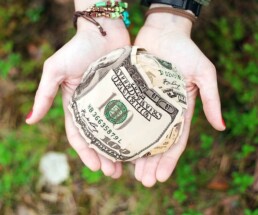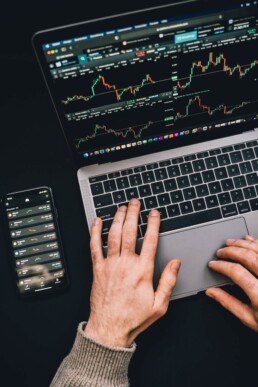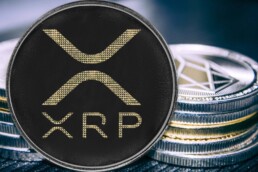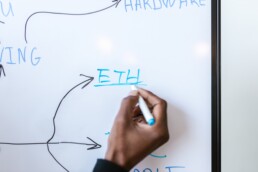Growth vs Value Investing
In the article “what is a stock”, we mentioned growth stocks and value stocks. This differentiation applies to two different approaches to allocate money in the market, even creating two competing schools of thought.
When we talk about growth, we are defining a quick, fast, nervous growth approach, popular in today's start-ups such as Uber, Tesla, and all the other New Economy companies.
The value approach, in contrast, is based on slow steady growth. More on a kind of Warren Buffet vision.
These two approaches, so different from each other, can obviously be divided into different strategies or be mixed in the average investor's portfolio. The important thing is to grow our capital.
We can define the investor's most suitable approach based on 3 characteristics:
1 the growth of the company underlying the stock.
In this case, our focus will be directed at the company's economic growth and returns. This is a Growth approach when these characteristics outperform other companies in the same market or beat the market itself. It is the obsessive search for the new Apple to revolutionize the industry.
Investors look for companies with a couple of years of rapid growth, and these companies will in most cases be smaller and younger and leaner than their competitors.
In contrast, Value investors are not interested in these mirabulous performances but aim for more mature and stable companies with slower growths.
2 Valuing the 'stock
To be a value investor is to be a bargain hunter, buying low for stocks of higher intrinsic value than the market now prices. In the mindset of the value investor, you don't buy stocks just because they are cheap but because there is a study and a search for value behind them.
Growth stocks tend to be much more expensive, but the 'investor will be pay this price because he expects exponential upside.
3 price volatility
growth stocks in most cases suffer from higher volatility than value stocks. This is because Growth stocks have a higher inherent risk given the fundamentals of start-up companies that are not yet established.
the growth approach is a riskier approach, although it may be the one that pays the most if you are buying a company that will have exponential growth over the years
growth stocks are usually sold and bought based on promises. Promises of growth, turnover, and market position. But promises are not always kept.
the value approach is more time-consuming and much more boring, with low volatility and little market excitement.
what is the best approach? depends on the period you are considering, how much risk you are willing to expose yourself to, and what kind of companies you are analyzing. A mix of the two methods might be the right choice, while a single growth approach in a specific sector that is growing is risky but in principle profitable. Hopefully.
Stock Market Index
The CAC40 makes +3%. The SP500 is down 5%.
OK, but what is the SP500 and the CAC40? They are stock market indexes.
A stock market index is a numerical measure of a group of stocks merged together.
Stock indixes are a summary of the value of the stocks they represent. The movements of the index is a good approximation of the changing value of the stocks included in the portfolio over time. There are different methodologies for calculating indexes, depending on the weighting given to the stocks in the basket
This measure is used to monitor the performance of the indicated group of stocks more quickly. In fact, the change in the unit of measurement gives a rough indication of the performance of the market we are monitoring or in which we have invested. In reality the number itself that we see does not indicate much in general and can be taken as a pure point of reference in certain analyses, but what we are interested in is the percentage of movement.
Indices are many and can represent the stocks of a country or a geographic area or an industry sector and investing directly in the index is feasible to get a return from the market.
Some indexes are among the best representations of a country's industrial performance, such as the SP500 for the united states
In contrast, some other list is not as representative because of the characteristics of the country's industrialization in particular. This characteristic can be applied to other countries that are affected by the same of type of industrialization or other types of economies that are more skewed toward particular sectors, such as banking or tourism.
To get a return from these markets you can buy index funds, which is equivalent to buying the total index. Sometimes it does not make sense to buy the individual stock but rather the total sector or country.
An index fund can be a mutual fund or etf that copies the stock composition of the index, this makes the investor, with this product, follow the market trend.
Of course we should not buy random things on the wave of enthusiasm, before we buy a basket we have to make sure what is in that 'index and understand its exposure. If we buy a technology index we will be exposed to all the risks of that sector, whereas if we focus on the Indian index, we will also be exposed to its country risk.
Then we have to consider how these indexes are created and how the various stocks within it are weighted.
XRP and Ripple
There is a coin in the cryptocurrency world that is considered a cryptocurrency when in fact it is not.
We are talking about XRP, created by the company Ripple. In common parlance XRP and Ripple have become synonymous, but the token's only name is XRP. This coin was not created with the idea of being a more functional alternative to Bitcoin, but to be a tool in the hands of the banking world by creating an alternative system to Swift.
XRP is not a real cryptocurrency because it is not totally decentralized.
In fact, Ripple began in 2012 as a system for transferring funds through a network for currency exchanges. In September 2018, Ripple was the second largest coin in the cryptocurrency market by market capitalization.
Ripple controls and manages XRP and has agreements with banks around the world. its code is open source and the value of the coin is affected by the value that is also assigned to the company.
Ripple was created solely to replace old systems such as swift, western union and moneygram with a cheaper system. Not all banks are connected to each other in the world with a single system. This forces banks to switch between different intermediaries in different countries, with long time and big cost for every transactions.
XRP is not created to be a store of value or to make transactions between economic actors in the real market but as a technical tool for specific banking actors or Payment Systems, companies, corporations, currency exchanges.
Because of its characteristics, Xrp cannot be mined but is a pre-mined currency. XRP is fast and scalable, in fact transactions in XRP take about 4 seconds versus 5-10 minutes for btc
XRP's wallet works with a minimum deposit of 20 XRP, an sistem created to avoid inordinate growth of accounts on its network for the sole purpose of clogging up the network and slowing it down.
The token is divisible up to 6 digits after zeros and some XRPs are destroyed after each operation, another system to protect the network. In the event of an attack, with thousands of useless transactions for the sole purpose of slowing down network, this system drains the accounts of the addresses that create the transactions.
Ripple's protocol is called rtxp Ripple Transaction Protocol and consists of pcs called validators that manage the network with their shared ledgers. Companies wishing to use Ripple's network must use gateways, which are points managed by banks and useful to those outside the network.
Ripple Labs was created only to offer banks various types of products, in fact RXTP is open source but the ripple products offered to banks are not and are created and developed only by ripple labs.
Let's make it a million euros!
Let's make it a million euros! Or dollar if you prefer!
Everyone wants money, everyone wants million dollars accounts, everyone wants Lamborghinis and yachts full of happy and nice young ladies. Well almost everyone, maybe the girls don't. I dont know.
Anyway back to reality, how do you build a million dollars account?
Let's try to create a list of ideas to reach our goal. Let's start dreaming with a look at the practical side.
Boom!!! We win the lottery!!!!
Or no...
First we need to do the math. If we work we need to see how soon we can reach this figure with the earnings from our job, obviously taking out taxes, expenses, mortgage, vacation, etc.
If we don't work, well we'd better look for a job first.
After that we have to find a way to grow our money in the bank, so we have to start investing. But before investing, we need to study.
So let's read all the CyMood articles and watch all the videos.
Now that we are less stupid we can start putting some money in the market. And now comes the hardest part.
We have to change our mindset, we have to operate on our emotional side. We have to accept that there will be painful losses, financially speaking. We have to understand that we will experience bad times when our investments will be into the negative zone, written on our screen in a blood red color.
But here we will have to believe in ourselves and see ourselves in a much better future than we have now. This vision serves to stimulate and push us to do better and not let us get depressed.
We tell ourselves a little lie, only to fool our brain to push us where we want to go. It is something difficult and uncomfortable for us but it has to be done.
The emotional part is the most difficult side. You may know the theory just fine, but your actions will always be driven by panic, greed and fear of losing your money. You must make sure that these emotions are kept silent in your soul in order to approach problems without emotions. Turning big problems into smaller ones.
Emotion will kill your trading account.
And always remember to use stop losses.
Another element that must never be lacking is Patience.
Patience is the basis for everything. Wanting everything right away is useless,as well as impossible.
Studying is fundamental, giving yourself time to learn is the basement of success.
Patience and study create a tool that is fundamental. The ability to adapt. Capacity that is given by the perception of the market and what goes around it.
You cannot expect to make money if you do not understand the environment in which you operate.
Adapting therefore means improving yourself. And improving yourself is another key element. The more you grow, the more capable and good you will be.
After that you will have to be judicious and disciplined. Discipline will help you through all your phases, from the best to the worst.
You will also need luck. It is undeniable, but often what others call luck is really just the result of a lot of hard, stressful work done behind the scenes to make sure you are in the right place at the right time. Remember that you see the road you have traveled, while others see only the end result.
The road you have traveled is the real goal. Not the money.
You have come a long way, changed for the better, and developed skills and knowledge that you did not have before. The money is the logical consequence.
Ethereum
Vitalik Buterin has given to the world one of the platforms with one of the biggest potentials on the planet. Ethereum has a very interesting future ahead of it.
Ethereum, whose currency is called Eth, is not only on par with btc a currency for exchanging value, but it is a decentralized platform for creating complex applications. In fact, the goal of ethereum is to decentralize the Internet from the network giants of today.
Ethereum is a decentralized platform for the creation and peer-to-peer publication of smart contracts, or in short, contracts that are self-executing and self-fulfilling. The applications of these contracts are and will be of an enormous number and will cover Gaming and gambling, various contracts, certifications, voting, real estate records and much more.
Even the famous ICOs are actually very simple smart contracts tied to the written code base. This code makes the contract immutable once deployed on the network and after blockchain approval.
Complicated smart contracts have a very high inherent level of difficulty and a huge need for security. You have to create perfect programming and be sure that the contract does only what the programmer has decided. Always remember that Code is Law.
The principle behind Ethereum is that since it is a decentralized platform for program development, anyone can create a program that cannot be controlled by any person or group and that program will run on Eth's network. With a little study of Solidity, all intermediaries can be eliminated and developers can work directly on the Blockchain.
Ethereum was launched in July 2015 and has since become the second largest cryptocurrency by capitalization. Its potential is extremely interesting and deserves to be followed .
A lot of applications are being developed on the ethereum network, from DEFI to NFT tokens to decentralized exchanges that are used to exchange tokens of different types, on the same network, eliminating the trust problem of a centralized exchange.
Ethereum's ease of programming has meant that thousands of other coins, which we can call tokens or altcoins depending on the situation, have sprung up on its network.
Tokens can be defined as the tokens for slot machine, and there are different types of crypto tokens. If we take our cue from Finma, the Swiss regulator, we can define them into 3 categories.
- payment tokens not linked to other functions i.e. Bitcoin, Ethereum, Litecoin. These are real coins, born for value exchange.
- utility tokens that serve a single platform or digital service such as Ripple's XRP, or Binance's BNB, and can be exchanged outside their native platform.
- Investment tokens, which, on the other hand, represent asset values, such as shares in real assets, companies, revenues, or the right to dividends or interest payments. These tokens should be considered in relation to their economic function, in a similar way to shares or corporate bonds, or a derivative financial instrument.
How Cryptocurrencies Work
Few people know or remember, that cryptocurrencies originated as a derivative product of another invention. In fact, Satoshi Nakamoto had no intention of inventing another currency.
The most important part of his invention, when he gave the world the whitepaper of bitcoin or” A Peer-to-Peer Electronic Cash System" was that he managed to create a way to create a decentralized payment system. Throughout the 90s of the 20th century, attempts were made to create a digital system, but all these attempts failed miserably. But developing a system as if it were a peer-to-peer file exchange was the right choice
To set up a payment network you need accounts, user profiles and transactions. Easy to understand but then the biggest issue is to prevent users from spending the same money twice with different entities. To solve this, we use a central server that keeps track of all user balances. But if we do not have this authority or do not want a central entity to certify and monitor users, how do we solve the problem?
In a peer-to-peer network, every single node must have a list of transactions and check that they are valid. Most importantly, all nodes must agree with the approved transactions, because otherwise the network immediately collapses.
No one knew how to solve this network consensus problem until 'Satoshi's invention.
If we take away all the marketing and halo of mystery around cryptocurrencies, and go to the 'bones of their definition , we could define them as "a database with limited writeability within it that no one can change unless it meets specific conditions." This sounds like the definition of a bank account in any bank.
To give a correct definition, cryptocurrencies are a method of exchanging value based on internet technology, which use cryptography to carry out financial transactions that are decentralized, transparent and immutable thanks to blockchain technology.
In currencies such as Bitcoin, the database is managed by the various nodes in the network. Each node has a shared ledger inside which the values of each account and the transactions made are put. Transactions are files that say Gigi gave Y btc to Pancrazio and this transaction was signed by Gigi's private key and then sent to the network.
The transaction is known immediately by the network but it takes some time to get it approved. Approval or rather confirmation of the transaction is one of the key parts of the technology. A confirmed transaction is immutable.
Only miners can confirm transactions, through the process called Mining. Mining involves closing blocks of transactions in the blockchain. Before doing this, however, miners must check the transactions, approve them and enter them into the network. When they are confirmed they become part of the blockchain. And to do this they receive other cryptocurrencies as payment.
Technically anyone can become a miner, since there is no central authority that can approve us or not. Of course it takes security rules to make sure that the network is not destroyed by those who have an interest in its demise. In the case of Bitcoin, the system is called proof of work, which is based on the SHA 256 Hash Algorithm and involves the miner finding a hash, to connect the closing block with the previous block. We can define it, to keep it simple, as a cryptographic puzzle to be solved. Solving it, the reward will be some bitcoins. And this is the only way to create new bitcoins.
Cryptography, therefore mathematics, makes the system secure.
So we are not talking about trust between humans, which can be bought or blackmailed. You cannot blackmail or kidnap the child of a mathematical operation.
Some of the most interesting properties of cryptocurrencies are:
Irreversibility: no one after confirmation can cancel a transaction. Wrong address? Nothing can be done about it. Your pc was stolen with the private key? Nothing can be done. The safety net is not there.
Pseudonymity: no account or transaction is connected to real life. However, if you have done a KYC somewhere, your identity is traceable.
Fast and global: transactions are virtually instantaneous, the speed of confirmation depends on the coin, but of ranges from second to 10 min in Bitcoin. They have no borders though since the network is global.
Secure: As long as you own the private key you are safe. Big coins are unlikely to be hacked unless there are deliberate bugs.
Permissionless: you don't have to ask anyone for permission to use your coins. No one can stop you from using them.
Limited Number of Coins: A good portion of cryptocurrencies have a limited supply, such as Bitcoin with its 21 million. In contrast, DOGE has an unlimited supply with a huge daily production. The limited supply is obviously an advantage in terms of maintaining value.
Think about how useful these properties can be to citizen freedom.
Security Guide for Newbies - Save the user
SECURITY.
You have 10 bitcoins.
Have you read them?
Bang!
Well now they're gone.
You screwed up, you were careless, you lost everything.
Because your security sucks. You didn't think long term and you were lazy. Laziness is for sloths, not for you.
Security and managing the security of any wallets in the crypto world is critical.
In this world there are no banks that can save you or help you, or people paid to help you if you lose passwords, private keys or if you are robbed.
Security is your duty and obligation. If you want to hold crypto, even in small amounts, you must follow some rules.
Remember that security and all the work you are doing here is to secure your coin. Security is not comfortable, is more like riding a motorcycle in the summer heat with a leather suit, that is not comfortable. But it is safe, and a comfortable service is unsafe. And we want SAFETY.
Let's go through an important, but not completely exhaustive, list of things you must do and not do.
We know that some things may be exaggerated, but you never know.
THINGS TO DO
Starting from scratch:
Back up of any private keys of each wallet. Private keys are also known as SEED.
The SEED is the set of words, which can be 12 or 24, that allows the wallet to be recovered if the wallet is lost or updated, depending on how the software works.
Always remember that whoever owns the seed, owns the coins.
Back up exchange access.
Always make a copy of the exchange access passwords and the e-mails that are used.
Of course protect the email password as well.
Back up the 2FAs.
Copy the QRs code of the 2FAs, make sure that you have a copy of any QR. Without 2FA you will not be able to access the exchanges.
Back up your phone for 2FAs.
If you have an old smartphone that you no longer use, you can use it to act as a Backup phone
Hide everything.
Needless to say, you can do as many back ups as you want, but if you leave something lying around, maybe written on some papers with the title "bitcoin wallet" and someone comes by and this person knows what to do....
And then remember where you hide your back up and what you put there.
Keep wallets updated.
Updates are done to improve services and to plug the holes that every system invariably has. Keeping wallets updated is a good and right thing.
Choose the right wallet.
Best to use one wallet per coin or per network type, example ERC20 or BSC
Multicoin and multi-network wallets can have larger security holes given the use of "exotic" coins that very often have only initial development and over time become insecure at the software level.
Use open source software.
Communities that make use of open source software in blockchain are communities that aspire to continuously improve the product. Best to rely on these people.
Check addresses after a copy - paste
There is a hacker attack that is called “Clipboard attack”. Your device has been infected with malware that recognizes the addresses of some coins and replaces the address you entered with another. So if you are withdrawing coins from an exchange, it replaces the address on your wallet with the one decided by the hacker when you go to copy paste. Always check that the address is correct. Dont be lazy.
Bookmark exchanges.
By bookmarking exchange addresses, beware of pishing attacks and clone websites created just to steal data from you. By using links in favorites you will be more sure that you are on the correct address.
Generate wallets only when you are alone.
You never know who is watching around you. Generating a bitcoin wallet in the middle of a square full of people is not very safe.
Know the Scams.
Follow our guide to learn how scams work and thus, not to get scammed yourself.
Maintain anonymity as much as possible.
There are crypto investor communities that are interesting to join, especially thanks to telegram. But we never know who is behind that screen . Be careful and study the situation before participating.
In case of robbery.
If they are unfortunately after your crypto wallets because you were unlucky or stupid, prepare in advance a wallet that is expendable with a low amount of money. But congruous with your big mouth. Idiot.
THINGS NOT TO DO
Lose back ups.
If you lose the papers or flash drives, you have lost access to the wallets.
If you misplace passwords or worse, misplace private keys, you can say goodbye to your coins.
This is the most frequent way to lose possession of coins, far more frequent than any scam.
Be careful where you write seeds
Do not write seed with a pencil but with a pen. Do not kick with a pen; a malicious person could retrieve your seed.
Then if use paper as temporary, destroy the paper with a shredder.
Do not use markers that could write part or all of the seed on underlying papers.
Do not use Clouds.
Do not put passwords, login information or seeds into any Cloud, even if you consider them hyper secure. Clouds can be hacked and this data leaked.
Pay attention to how you use your "notepad."
Do not lend your cell phone if you have a wallet in it.
Pure logic.
No photos with cell phones.
Do not take password or seed photos with your cell phone. Your cell phone may be hacked, you may forget to delete the photo, and you may lose your cell phone.
Buy a hardware wallet.
Do not have hardware wallet sent to your home.
Do not have hardware wallets sent to your home address, but use other addresses that cannot be traced back to you. Security flaws and data theft at Ledger have left all of the company's customer information at the mercy of hackers. It doesn't take long to realize that your data can be bought and used to harm you.
Don't leave clues.
Never leave behind papers, notes, or signs that might indicate your possession of cryptocurrency.
If you leave seed and password sheets around, your cleaning lady might betray you or sell you to someone. Or your wife might throw away some papers with random words written on.
Don't go around telling people that you have cryptocurrencies or how many you have. Stay in the shadows.
If someone should ask, answer that it is a subject you have studied but you have never owned anything, that you have never invested any money in them. There are people around who could harm you, who could threaten your family and your loved ones.
Do you really want to risk having your daughter killed only to fool around at the Club with those 4 assholes of your friends?
Safety rules for any exchange.
Always remember that the moment you signed up, you are vulnerable to be hacked.
You may have your password stolen. So use a password that is complex but different from the other services you usually use. A password that is the same as other sites can be a problem -
es Binance vs. small book seller. Understand that the investments in security between the two services are not comparable. It should be added that your email is easily traceable and this would give possible access to your funds if you have not protected yourself with another layer of protection such as 2FA
For this reason, always activate 2FA. But do not activate it from the email, Thats a bad choice.
Remember that the biggest flaw in any service is you, with your unintentionally careless behaviors.
We suggest making an email for exchanges, using privacy-oriented services such as Protonmail's.
For password creation you can think of something long consisting of several words yourself or using a program such as a password manager. Remember that a password created by the pc with numbers and letters is impossible to remember, while a password created with a phrase or set of words that make sense to you can be remembered more easily. We prefer a passphrase.
Again, for each exchange use a different password.
In case you use a password manager, you only have to remember the passphrase to access the service.
Never abandon coin on exchanges.
Because exchanges are a risk, coins that remain on the 'exchange can be stolen in the event of an attack. Do not leave coin to do anything on any exchange.
Coins can be left on some exchanges to create a passive income. But this is discussed in another article.
Another important point is that only coins should be left on exchanges to trade and that you are willing to lose in case of a security breach.
FOMO
FOMOOOOOOOOOOOOOOOO
What does this word mean?
Today we're going to explain a term that you surely read often, but that also has a deep meaning in the psychology of every trader.
FOMO means fear of missing out, and we could translate it as fear of having missed an opportunity, sometimes unrepeatable.
We can also see it as a social anxiety for having missed an interesting and very profitable investment train.
Fomo is one of the many biases working against you.
This feeling that you will feel deep inside will be a mixture of discouragement, anger towards yourself and frenzy to jump on the market without ifs and buts, without thinking and without having any regard to money management.
It's a feeling that is present especially now in the social media era, thank to the continuous updating of what other people are doing, the lifestyle that the social media of certain characters are selling us and their wealth.
You see on twitter and instagram unknown kids becoming millionaires overnight, driving around Dubai sitting in bentleys and surrounded by fabulous models, all accompanied by articles and pictures of their bank accounts at various zeroes.
And you're in your bedroom, in your underwear, guzzling a cola. It's obvious that you want to do what they do and have their lifestyle.
However, this emotion of envy you're feeling leads you to follow some advice that could be bad for your wallet.
Right now you're susceptible to those articles in blogs with titles like "the 5 coins you can't not have in your portfolio" or "XX's untameable growth" or "expected 200% return with YY".
To which we have to add all the messages that you read in the various chats, which promote things never heard that in most cases are scams.
And then you enter in the optics that "now or never" on some unknown coin, you buy it exaggerating and you throw away all your past gains.
You don't have to do that, it's not a competition and you don't have to buy things that in a normal situation you would have never bought.
And on top of that you are left with the anger of having thrown money away and you can only take it out on yourself.
This is why we talk so often about managing emotions and anxiety.
If you had stopped to think, none of this would have happened or you would have allocated a much smaller amount.
You've gone overboard with your level of risk
Now let's face it, social media are fake.
They are a mirror of what we would like to be and that we somehow make others see. But that we are not.
When we see these millionaire kids, their success is exaggerated to sell you one of their products.
Most of the successes of those we follow on social are exaggerated narratives.
The cars, jewelry and private planes are definitely rentals and the incredible models are only friends of their cousin or prostitutes.
None of these champions talk about their mistakes and losses but all they talk about are the victories and the fantastic billions they are making. Some even get paid to foment fomo or to sell scams or useless courses or useless books.
Now back to us, generally the rule to earn is buy low and sell high, which is very logical but in most cases if a stock is low, mentally evaluate the situation as negative, if it is high it is positive and you think it will go up again.
This is possible, but what if the uptrend is over?
If everyone is rushing to buy Ethereum after a 200 percent rise, you are compromising your risk level just because you are following the crowd, you are following the hype.
And the hype is the enemy
You're acting on the urgency to do something and that's not good because as you know deep down, returns are not guaranteed.
The fomo, the frenzy doesn't make you think rationally and doesn't deepen what you're putting your money on.
If you get caught up in the frenzy to buy after you've seen a post on some social, stop for a moment and think
who is making the post on social networks? Is he a serious and reliable person, is he an idiot?
Is he someone who knows something about it or is he a bum with no experience at all?
These questions can stop you from making some careless purchases.
And always remember that limited time windows in most cases hide nasty surprises.
I don't doubt that some of the axles being touted could be the new Tesla, but being cautious is always best.
You might feel like an idiot for missing an opportunity or will you be an idiot for losing all your money?
Keep calm and study.
Why Investing is important.
Why people invest in the financial markets?
The reason is only one.
To have more money.
In fact, investing is neither more nor less like a job, using our money to have an economic return.
Not to be confused with the term speculation, which refers to a short term view, investment refers to the long term and has a different forms of investment instruments.
These tools are created to ensure that companies raise money for their activities, money that is raised by selling debt such as bonds or a small part of the company, such as shares.
Returns are never guaranteed given the risk inherent in investing.
There are no zero risk investments, don't believe anyone who tells you such a thing.
In fact, you can lose everything, because you have to remember that the higher the risk, the greater the return.
Various techniques are used to lower risk, such as diversification which applies to unrelated investments.
Investing serves to achieve personal and family financial goals such as the possibility of having more money for goods and services, to be able to afford a dream home or vacation, or to have economic certainty when you retire.
Starting early means having a longer period of time to be able to accumulate, also thanks to compound interest.
How to get started with bitcoins!
what are the steps to get to know Bitcoin?
Step n1 Education
You have to understand the basics of bitcoin and what revolves around it, studying our guide and seeing our videos is a good starting point.
You have to understand why people appreciate this new technology, what gives it value and why, what is behind it and what are the ideas that led to its creation.
Step n1 is useful but not fundamental, in the sense that you can buy bitcoins even without knowing anything about it.
The second step is to gain experience with a purchase.
Create a wallet, sign up for an exchange and start moving your bitcoins.
Get experience through small transactions and expect to spend 100 euros that you can consider lost.
Then try to turn some of these bitcoins into ethereum and experience that too.
The third step will be to stay updated on the technology and the market.
And always follow us.












